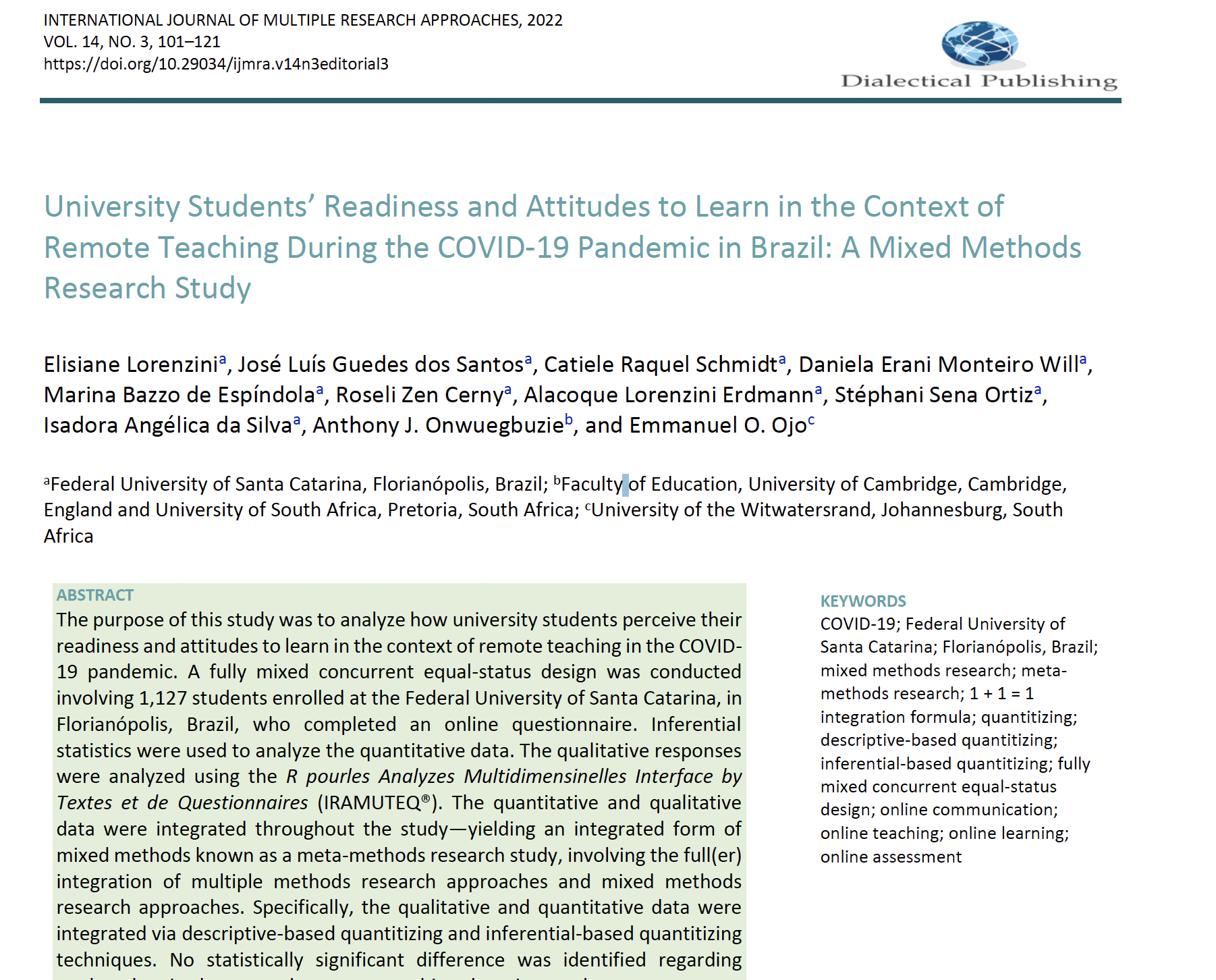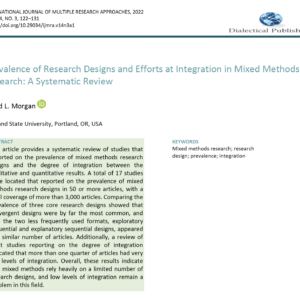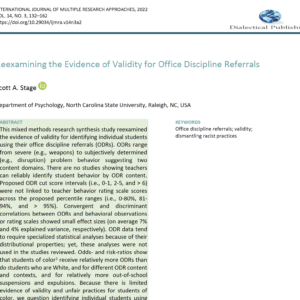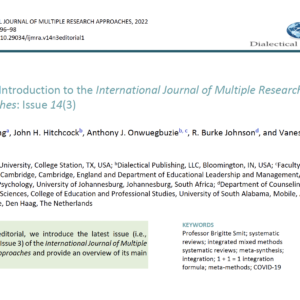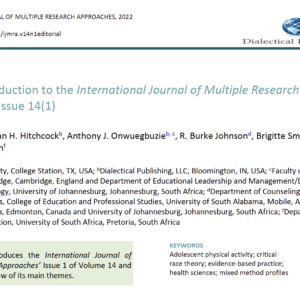14(3). 03. University Students’ Readiness and Attitudes to Learn in the Context of Remote Teaching During the COVID-19 Pandemic in Brazil: A Mixed Methods Research Study
$30.00
Description
Author
Elisiane Lorenzini(a), José Luís Guedes dos Santos(a), Catiele Raquel Schmidt(a), Daniela Erani Monteiro Will(a), Marina Bazzo de Espíndola(a), Roseli Zen Cerny(a), Alacoque Lorenzini Erdmann(a), Stéphani Sena Ortiz(a), Isadora Angélica da Silva(a), Anthony J. Onwuegbuzie(b), and Emmanuel O. Ojo(c)
(a) Federal University of Santa Catarina, Florianópolis, Brazil; (b) Faculty of Education, University of Cambridge, Cambridge, England and University of South Africa, Pretoria, South Africa; (c) University of the Witwatersrand, Johannesburg, South Africa
Abstract
The purpose of this study was to analyze how university students perceive their readiness and attitudes to learn in the context of remote teaching in the COVID-19 pandemic. A fully mixed concurrent equal-status design was conducted involving 1,127 students enrolled at the Federal University of Santa Catarina, in Florianópolis, Brazil, who completed an online questionnaire. Inferential statistics were used to analyze the quantitative data. The qualitative responses were analyzed using the R pourles Analyzes Multidimensinelles Interface by Textes et de Questionnaires (IRAMUTEQ®). The quantitative and qualitative data were integrated throughout the study—yielding an integrated form of mixed methods known as a meta-methods research study, involving the full(er) integration of multiple methods research approaches and mixed methods research approaches. Specifically, the qualitative and quantitative data were integrated via descriptive-based quantitizing and inferential-based quantitizing techniques. No statistically significant difference was identified regarding students’ attitudes towards remote teaching, learning, and assessment as a function of field of study. However, there was a statistically significant difference between the fields with regard to the communication in remote learning (i.e., online communication), indicating that the nature of specific knowledge addressed in the educational process might require different forms of communication in the context of online teaching. In addition, it was identified that younger students, up to 24 years old, reported more difficulties with this online teaching model. The graduate students demonstrated more positive attitudes towards remote learning compared to the undergraduate students. Predominantly, the participants of this study believed “that there is no equivalence between remote and face-to-face teaching,” which can be explained by the lack of autonomy to manage their learning process because only 56.8% consider that they had autonomy to study and to learn. During the qualitative stage, students responded to the following open-ended question: To what extent do you consider your current family situation/home environment suitable for remote learning? Via the analysis using the Iramuteq® software, the following five semantic themes were extracted: (a) Feeling privileged; (b) Difficulties in establishing a study routine; (c) Difficulty in concentrating; (d) Internet access problems; and (e) Structural limitations. The integrated analysis allowed elucidation of the influence of the home environment on remote learning. The integration of data revealed that underage, single, childless, and living-alone students were statistically significantly associated with the thematic categories regarding the difficulty in concentrating, difficulty in establishing a routine of studies, and having problems accessing the Internet. Implications of these findings are discussed.
